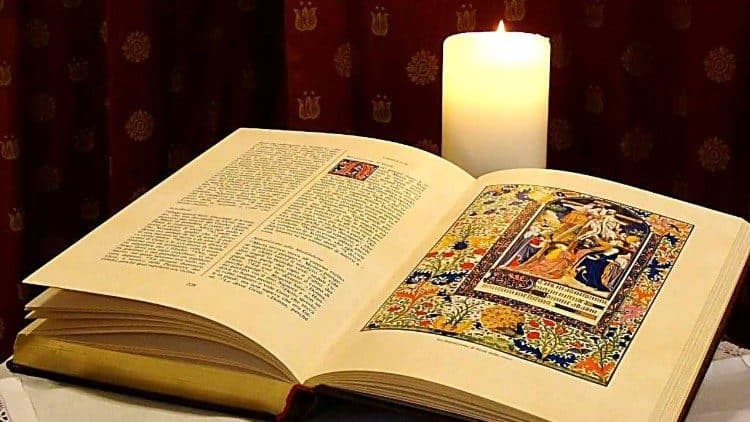As the church summarizes what her life of prayer looks like, she turns to the Acts of the Apostles and describes the place of the apostolic teaching, holy fellowship, the Breaking of the Bread, and the prayers in her own life and supplications before God.
On this foundation, the church prays with an open heart and a docile spirit. She welcomes the Holy Spirit and pines for the coming of the Lord.
In describing the prayers of the church, the Catechism of the Catholic Church explains: “In the first place these are prayers that the faithful hear and read in the Scriptures, but also that they make their own – especially those of the Psalms, in view of their fulfillment in Christ.”
And so, the faithful are to know the prayers contained in the Sacred Scriptures, especially the psalms. These prayers are the highest expression of the human spirit yearning to see God and have union with him. The psalms, along with the various canticles, hymns, songs, and prayers throughout the Bible, are to be a ready resource to help the faithful as they labor to pray.
The use of the psalms and the other spiritual resources of the Bible are not meant to be cold and removed from the hearts of those who pray. We are not to be parrots, rattling off the heartfelt prayers of others. The Catechism makes the point that the faithful are to “make their own” the biblical prayers of the Bible. We are to dive into the depth of the biblical prayers and make connections between them and our own lives and struggles, joys, and hopes. We are see understand the Bible as a living word and allowed the inspired prayers, especially the psalms, to mold and mature our own prayers.
The Catechism repeats a previous point and stresses to us: “The Holy Spirit, who thus keeps the memory of Christ alive in his church at prayer, also leads her toward the fullness of truth and inspires new formulations expressing the unfathomable mystery of Christ at work in his church’s life, sacraments, and mission.”
The Holy Spirit is again given his rightful and necessary place as the one who keeps the church on track and on target. The Spirit preserves the memory of the church about Jesus Christ. He “keeps the memory of Christ alive.” While retaining the memory of the church about her Savior, the Spirit also leads and inspires the church to express the mystery of Christ. The prayers and supplications are God’s people are not stagnant and without life. The prayers come from the inner depths of man’s heart and soar to the height of God’s majesty.
This movement of the Holy Spirit has given birth to new expressions of prayer within the life of the church. The Catechism explains: “These formulations [of prayer] are developed in the great liturgical and spiritual traditions.”
The spiritual treasury of the church is deepened and enriched by the great liturgical and spiritual traditions of God’s people. Each liturgical and spiritual tradition highlights and emphasizes some shared revelation among God’s people.
Each tradition is needed and has oftentimes arisen at a moment when some aspect of God’s revelation has been eclipsed or waned. The various traditions have oftentimes come to us through founders of religious orders or other spiritual masters who were attuned to God and his revelations and were raised up by God to retrieve a forgotten truth or some declining aspect of the living God.
As much as the liturgical and spiritual traditions are valued and needed, and recognizing the immense part they have played – and continue to play – in the life of the church, the Catechism still makes the important point: “The forms of prayer revealed in the apostolic and canonical Scriptures remain normative for Christian prayer.”
And so, as much as we love the various prayers, novenas, litanies, and other resources of the various liturgical and spiritual traditions throughout the history of the church, none of them compete or rival the forms of prayer given to us in the Sacred Scriptures.
Such a clarification should not present any tension or antagonism between the Bible and the liturgical and spiritual traditions. Quite the opposite. The liturgical and spiritual traditions are enriched and elevated by the presence and power of the inspired Word of God.















